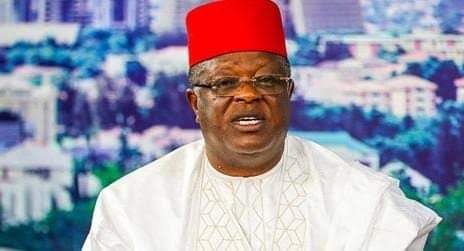The conventional but cult-like political and electioneering dynamics in Abia State during the party primaries, ahead of the 2023 General Elections, have obviously left many political office seekers psychologically and politically disillusioned across board.
The horse trading and maneuverings that held sway during the election of candidates in practically all the political parties were unprecedented and scandalous, leaving the parties messy and in tatters.
Worse hit, outside the ruling-Peoples Democratic Party (PDP), has been the opposition-All Progressives Congress (APC) in the state.
READ ALSO: PDP, APC Dead, Only NNPP Can Rescue Nigeria — Kwankwaso
While one can safely say that PDP appeared stable after the defection of aggrieved critical chieftains and aspirants, including the Governorship Candidates of the All Progressives Grand Alliance, Prof. Gregory Ibe, and Young Progressives Party, Engr. Enyinnaya Nwafor, as well as the Labour Party’s Candidate for Isialangwa North/Isialangwa South Federal Constituency, Chief Ginger Onwusibe, the same cannot be said of APC.
In APC, the litany of legal battles that trailed the primaries has continued to rage unabated from one layer of Court to another.
One of the claimants to the party’s governorship candidacy, Chief Ikechi Emenike, once said at a consultative forum at Item in Bende Local Government Area that he had 19 suits filed against him in the aftermath of the party’s governorship primaries.
Emenike said that he stood out as the candidate with the most number of suits trailing his emergence. He said this in August, meaning that by now, the number may have increased.
The unending legal battle only suggests the level of discontent among the members, especially the key gladiators who, in order to show their grievances, have continued to interrogate the credibility of the process and outcomes of the primaries through the court.
The worse scenario for APC appeared to be the multiple and conflicting judgments emanating from the courts, even from those with concurrent jurisdiction on one and the same subject matter, being the outcomes of the controversial primaries.
For instance, an Abuja High Court presided over by Justice Binta Nyako, on Nov. 11, validated Chief Uche Ogah’s candidacy.
By its judgment, the court upheld Ogah’s direct mode of primary and nullified the result of Emenike’s indirect primary election.
Both elections were held on May 26, 2022, from which Ogah and Emenike claimed to have emerged candidates.
Emenike, on the other hand, had obtained two high court judgments in his favour.
Today, both Ogah and Emenike are going ahead with their campaigns, seeking the support of the Abia electorate, particularly APC supporters, who are now balkanised into two opposing camps.
There is yet another third camp of teeming party faithfuls and chieftains loyal to Chief Daniel Eke, a US-based chartered accountant, who also participated in the governorship primaries.
An aggrieved and thoroughly disillusioned Eke has also been in court since the end of the purported primaries, seeking a nullification of the outcomes of the parallel primaries.
His grouse is that none of the two purported primaries met the extant provisions of Section 84 of the Electoral Act, the APC Constitution and party guidelines for the conduct of the primary election.
His argument is that since neither of the parallel primaries was conducted within the purview of the APC guidelines, the outcomes should be invalidated.
He vehemently dismissed the two exercises as “charade”, insisting that both Ogah and Emenike, who claimed to have emerged through the controversial primaries “cannot sustain their claims”.
Advancing his argument, Eke contended that Ogah claimed to have emerged from a purported direct primary, which was not conducted by the party’s electoral committee, thus nullifying the process and its result.
Eke said: “The party opted for a direct primary for Abia but the Electoral Committee appointed by the National Executive Committee (NEC) conducted an indirect primary from which Emenike claimed to have emerged.
According to him, there was no time the APC conducted a delegate election in the state.
“Therefore, it is very clear that there is a fundamental infraction that cannot be overlooked.
For the party to conduct a valid indirect primary election, it must have conducted a delegate election from where those who will vote at the electoral college will emerge, otherwise it is a nullity.
“For Ogah, the position of the Electoral Act is that if the party’s electoral committee does not conduct your primary, even if INEC supervises it, such a primary is a sham.
“One cannot conduct an election for himself as it defeats the principle of justice of one not being a judge in his own matter,” he said.
Eke’s suit at the Umuahia Federal High Court, with No. CA/OW/419/2022, however, suffered a setback, when Justice Evelyn Anyadike, ruled that he did not take part in the primaries and so lacked the locus standi to challenge the outcomes.
The court’s decision was based on the preliminary objections contained in the affidavits deposed by APC, Emenike, and Ogah as first, second, and third respondents, rather than the merit of the suit.
Dissatisfied with the judgment, Eke proceeded to the Court of Appeal, Owerri Division, where he filed a suit with No. CA/OW/419/2022.
He urged the court to quash the decision of the lower court which denied him the locus standi to prosecute the matter.
He also asked the court to look at the merit of his case in the originating summon.
On November 30, the Upper Court, presided over by Justice Pemu Rita Nosakhare, delivered its landmark judgment.
And contrary to Anyadike’s judgment, Nosakhare ruled that Eke had the locus standi to challenge the outcome of the primaries, being a registered member of the party in his Igbere Ward.
The court reinforced its decision on Eke’s locus standi by pointing out that he paid N50 million to purchase the APC Governorship Nomination and Expression of Interest Form.
It, however, appeared to have overshot its limits, when it further ruled that Emenike was validly elected as the Governorship Candidate through the indirect mode of primary election.
It is on the basis of the obvious contradictions and perceived miscarriage of justice that Eke has dragged the matter to the Supreme Court.
Eke’s Counsel, Chief Obinna Nkume, also disagreed with Nosakhare’s decision to validate Emenike’s candidacy.
According to Nkume, it was a wrong decision of the court to award a judgment to Emenike, whereas he did not ask for it.
He further said that the specific pronouncement by Justice Nosakhare that Eke’s suit succeeded in part gave impetus to his resolve to seek the apex court’s nullification of the claims by Emenike and Ogah.
He said that with the issue of locus standi resolved in his favour by the Appeal Court, the coast became clearer for Eke to get the Supreme Court to adjudicate on his originating summons.
Nkume further said that the Independent National Electoral Commission posited in court that it did not monitor Emenike’s indirect primary as provided by the Electoral Act.
He said that it was worrisome that the appeal court discountenanced such a fundamental infraction but went ahead to validate Emenike’s candidacy.
He also said that the appellate court judgment tactically eliminated Ogah from the suit as the third respondent.
Nkume said that the pursuit for justice at the Supreme Court by Eke had been made simpler by the Appeal Court judgment.
As things stand today in Abia, the chances of APC in producing the next governor of the state remain empirically remote.
It is instructive to state here that although the supporters on each side remain optimistic as they wait for the dust to settle, either way, the huge crack created in the party is getting wider by the day.
The implication of this is far-reaching. It means that the side that eventually loses the battle in court would go into the 2023 General Elections poised to cast a protest vote against the party, if only to spite the eventual candidate.
But far more instructive is that the outcome of Eke’s appeal in the Supreme Court may become the last straw. It has the capacity to either make or mar APC’s fortunes in 2023.
This means that should the apex court grant his appeal, it means the end of the road for APC, Emenike, and Ogah put together.
But should it not, then the party risks going for the worst electoral defeat and humiliation ever.
This is why it may not be late in the day for the Abdullahi Adamu-led APC to seek an alternative course to end the unwinding legal battles.
The NEC of the party can achieve this by convening a roundtable for the different embattled camps of Emenike, Ogah, and Eke for a heart-to-heart, no-holds-barred jaw-jaw.
The essence will be to ultimately broker a lasting political solution and rapprochement for the protracted stalemate, close up the cracks, and birth an all-embracing, formidable team to prosecute the APC campaign for a resounding outing in 2023.
Sam Okobi is an Umuahia-based public affairs analyst.

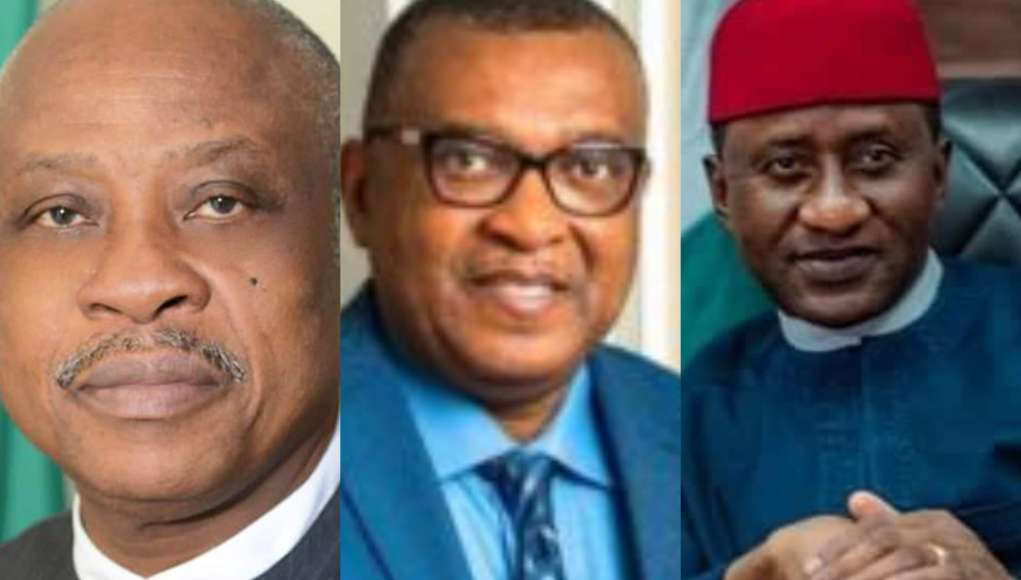
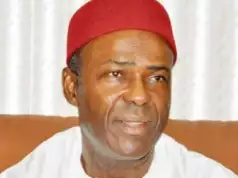

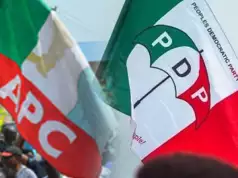

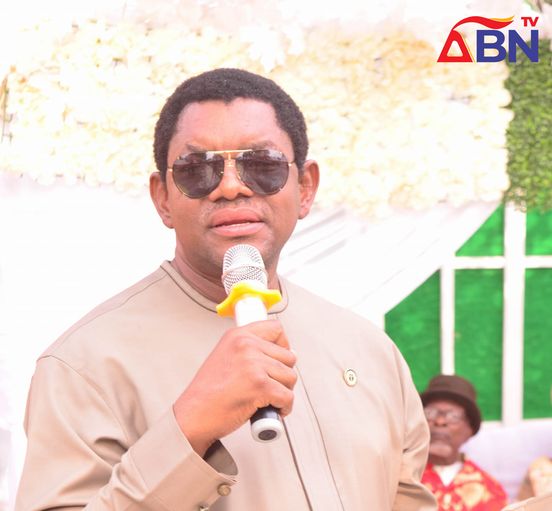
![Latest Recruitment At Visa Incorporated Nigeria [APPLY NOW] Latest Recruitment At Visa Incorporated Nigeria [APPLY NOW]](https://abntv.com.ng/wp-content/uploads/2024/04/Visa-100x75.jpg)
